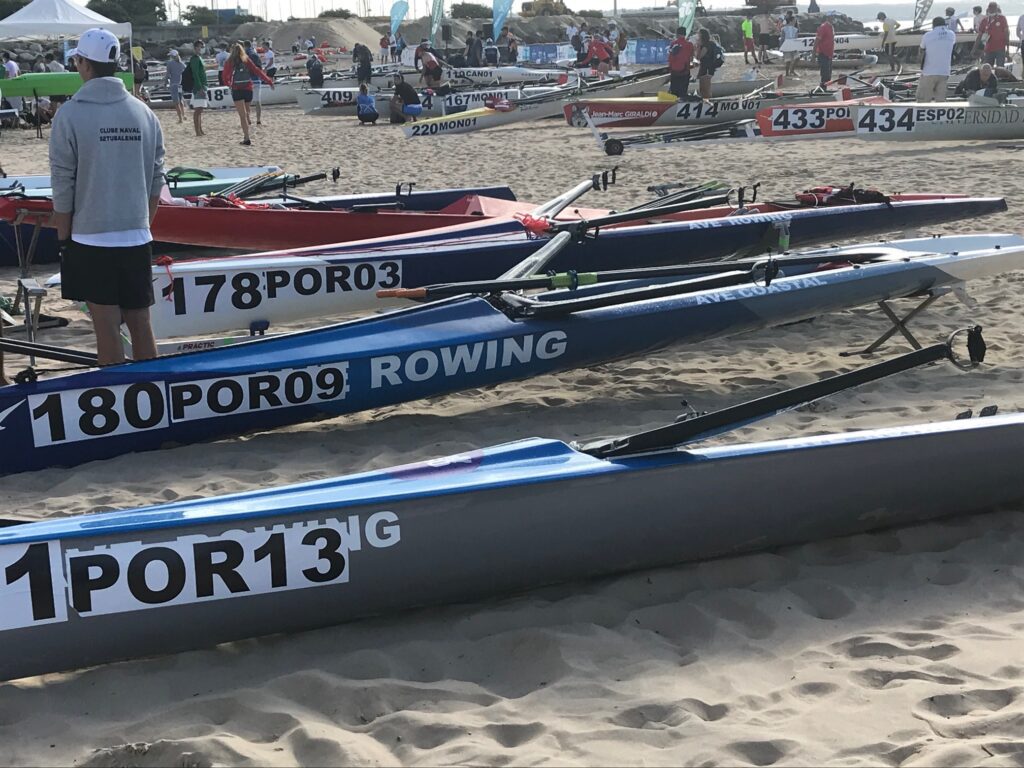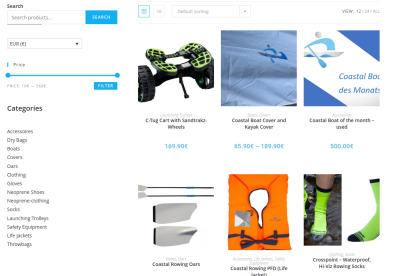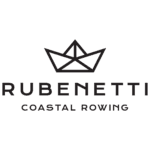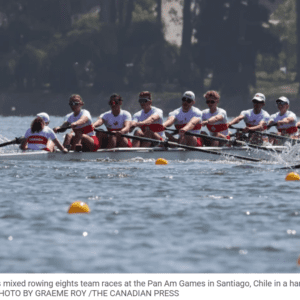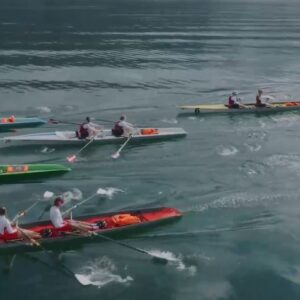We attended a brief discussion between some top national rowers questioning the boat format and the boat logistics at the Olympic Coastal Rowing event in Los Angeles. “Is it allowed to bring your favorite boat to Los Angeles? Can I use my national boat to the Olympic Games? Will Filippi be again the boat provider?” What do you think the conclusion of this discussion was? “We dont know. World Rowing will decide”. What we know today: World Rowing has a arrangements with boat suppliers and might end soon.
Questions upon questions
Will these contracts be extended? Will pool boats continue to be used? Can smaller boatyards take part in the tenders? There is much to suggest that pool boats will continue to be used in the future, including in Los Angeles. We don’t think that the boat fleet at the Beach Sprints will be individualized and that teams will be able to bring their own boats to the regatta. The dream of many small manufacturers will probably not come true. Let’s wait and see. We will hear something by 2027 at the latest. Fair or not, it doesn’t make sense for smaller shipyards to invest in beach sprint boats at the moment.
Plan B
How about the option that we see in Olympic Sailing: Maybe one boat class / specification and many producers. Take the 470 Olympic Dinghi. One designer and 4-5 different producers in different countries. A model which has been decided by World Sailing. Also a model for the LA28 Olympics?
Same procedure as every Olympic Event?
We have new, significant players in our sports (Read our blog about the new kids on the blog) and maybe some of them are trying to design better performing beach sprint boats. Will these boats be allowed in the games? Can we expect a change of boat specifications before the 2028 Olympics? Will we see a similar boat strategy as we see for the fine boats?
Here are considerations for pool boats and individual boat transportation:
Pool Boats:
-
- Advantages:
- Important Players: It is possible, that the pool boat company will offer a great package to the organizers. Past regattas have shown that the pool boat companies are prepared to make a considerable effort. In this respect, smaller companies such as Kanghua, Rubenetti, Ave, Lite or Leo may participate in a tender. How successful can they be? Their worldwide boat sales are too low to make sponsorship worthwhile for their company.
- Efficiency: Pool boats (shared among multiple crews) can be more efficient in terms of logistics, boat transportation, and boat allocation during a regatta. This is definitely and advantage for the big suppliers like Filippi and others. Esp. Filippi has a great logistic system to supply pool boats to almost any regatta in the world.
- Cost-Effective: Pooling resources with one or two boat builders can be cost-effective for both organizers and participants, as it reduces the total number of boats needed for the event. Plus: Crews spare their logistic cost. Imagine bringing a solo to on of the pacific coast harbours: This might cost you lots of USD
- Equal Opportunity: Pooling boats can help ensure that all teams have access to boats of similar quality, reducing the impact of boat variability on race outcomes.
- Disadvantages:
- Adjustment Time: Theoretical, rowers may need some time to adjust to different boat setups, oar locks, and other equipment features. This adjustment period could affect performance. Still, we expect, as at other Regattas, that the boat set up is defined and cannot be changed.
- Potential for Inequity: If the allocation of pool boats is not handled correctly, this can lead to perceived or actual inequalities between crews in terms of boat quality. 2 minutes of crew preparation time before the race is not enough to repair significant damage.
- Advantages:
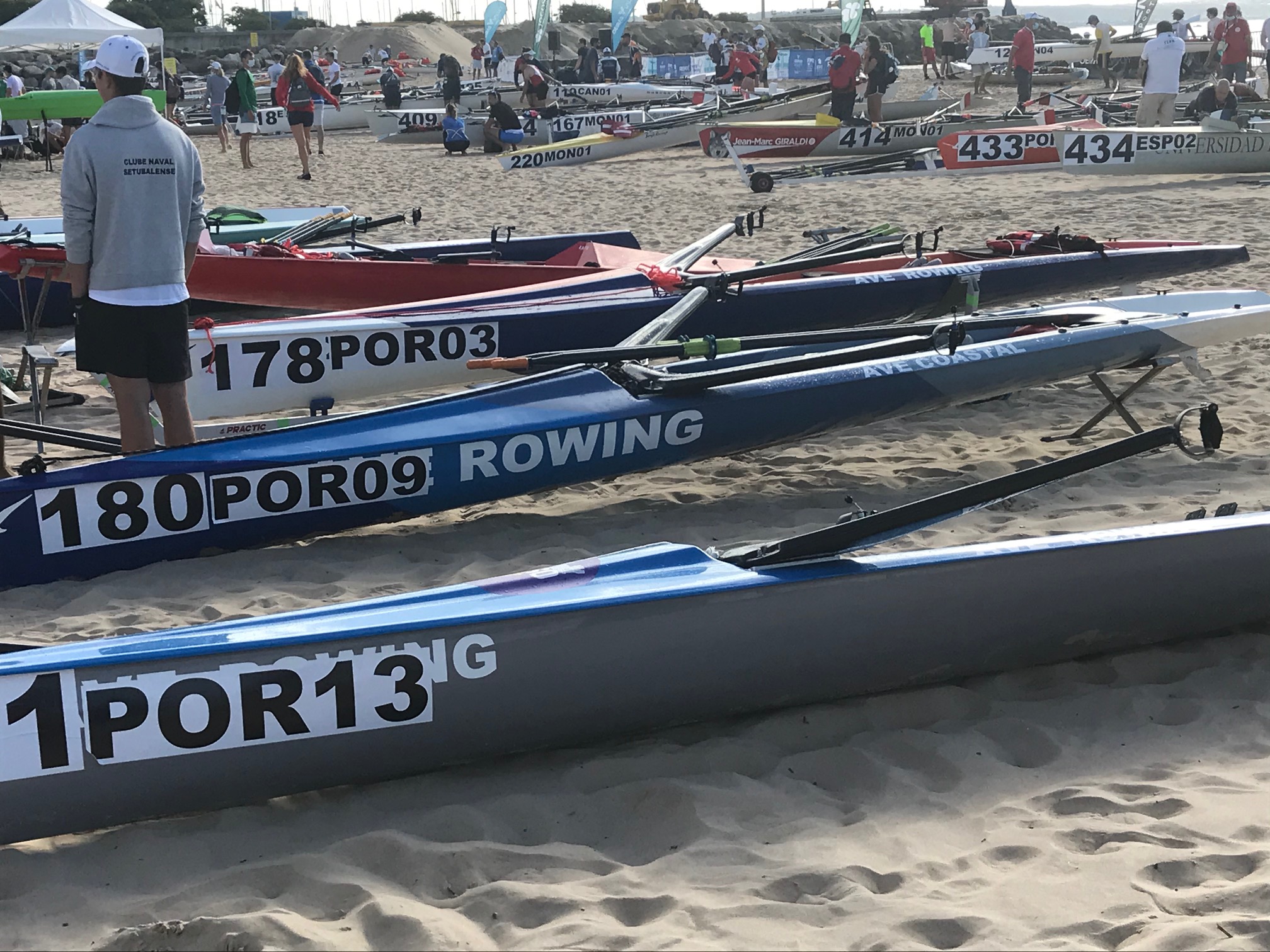
Need to bring your favorite boat to Los Angeles: Individual Boat:
-
- Advantages:
- Consistency: Crews and their rowers are more likely to be familiar and comfortable with their own equipment, leading to more consistent and potentially better performance. They can decide on their boat they believe in. Rowers have used their own boats in several conditions. At home and at different regatta places. Also the access to their own boats shortly before the event date might be easier espec when you train.
- Customization: If allowed: Rowers can customize their boats and oars to their preferences, potentially optimizing performance.
- Reduced Adjustment Time: Since rowers are using their own boats, there is no need to adjust to different equipment, potentially reducing the adaptation period.
- Disadvantages:
- Less income for organizer: Less rental income: When crews bring their own boats, they still will be charged by the organizer. This might make the payment process and the follow up more burocratic and lenthen the process.
- Logistical Challenges: Managing and transporting even a small number of individual boats can be logistically challenging for both participants and organizers. This is something crews have to consider. Lets not forget boat security and event security: In case 20 Nations bring 3 boats to the event, we will have 60 boats to handle. A pool boat provider would probably need less boats. Where to put my boat, were to bring the boat to the weighing station? It sounds attractive to Nations and crews to bring your own equipment – still the details might be complicated and very time consuming. Plus: The logistical challenges might take your concentration from the real important part of your event: the races.
- Costs: Individual boats increase the overall cost of the regatta, as participants bring and maintain their own equipment. ho does tsafety checks? Who controlls material, equipment and rigging devices? It definitley needs severe and professional planning. Most national Associations know this from their Olympic fine boat events.
- Inequality of material and quality: If some teams have access to higher-quality boats or equipment, it may create an uneven playing field.
- Advantages:
Considerations for the present situation:
- Boat shapes not clear: We do not know if there will be new specs for the beach sprint boats in 2028. Nor whether there will be pool boats in LA. A decision on pool boats in Los Angeles has not yet been made. Clubs and national federations do not know which type of boat or manufacturer will supply the Olympic coastal rowing regatta. However, it can be assumed that the current practice of pool boats will be maintained.
- Purchase decision now: What should a club do when it has identified rowers to send to national beach sprint qualifying regattas? Which boat should it buy? Which boat should you not buy? We have heard, that some clubs are even thinking about buying 3 boats. A coastal solo with a beach sprint design, a coastal single for the long distance races and a double scull for beach sprint and long distance races. If a club is ready to buy, consider this: In recent years, the pool boat suppliers have changed the beach sprint model several times. If you buy a BS boat today, you can assume with a high degree of probability that this shape will not be the design for Los Angeles. This makes the purchase decision a little easier. So maybe you look around for coastal boats that are maneuverable and easy to turn but also perform well on the endurance long distance race. Kanghua’s Co1x, Rubenetti’s new (R12) and Leo Griffin are good alternatives.

